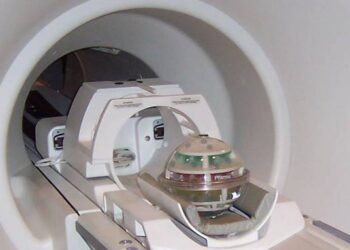Risk of autism in offspring linked to maternal pregestational diabetes and severe obesity
1. Maternal prepregnancy obesity without pregestational diabetes mellitus (PGDM) or gestational diabetes mellitus (GDM) was associated with a slightly increased risk of having a child with a neurodevelopmental or psychiatric disorder.
2. Mothers with severe obesity and insulin-dependent, pregestational diabetes had a sixfold increased risk of having a child with autism spectrum disorder (ASD).
Evidence Rating Level: 1 (Excellent)
Study Rundown: A growing body of evidence suggests that prenatal exposure to maternal obesity and associated metabolic derangements are linked to the development of psychiatric and neurodevelopmental disorders in offspring. The purpose of this large, prospective, population-based cohort was to evaluate the association between maternal body mass index (BMI) with or without PGDM or GDM and neurodevelopmental and psychiatric disorders in offspring up to 11 years of age. Their data showed that maternal obesity without PGDM or GDM, maternal obesity with GDM, and maternal obesity with PGDM were all associated with a slightly increased risk of having a child with a psychiatric or neurodevelopmental disorder. Severe maternal obesity with PGDM was associated with a fourfold increase of having a child with a neurodevelopmental or psychiatric disorder, and specifically, a sixfold increased risk of having a child with ASD. Limitations of this study include potential missed neurodevelopmental or psychiatric diagnoses in children born later during the study period, the grouping of distinct disorders to increase sample size, and the use of insulin prescription reimbursement as a surrogate for PGDM. This study may help providers identify children who may be at higher risk for certain neurodevelopmental and psychiatric disorders based on maternal history.
Click to read the study published today in Pediatrics
Relevant Reading: Maternal obesity and neurodevelopmental and psychiatric disorders in offspring
In-Depth [Prospective cohort]: This study include all live births in Finland between 2004 and 2014 (n = 649 043) using national databases to collect maternal and pediatric clinical data. PGDM was identified by insulin treatment via a national drug database and GDM was identified by ICD-10 codes. BMI categorization was completed per World Health Organization guidelines. Primary outcome were neurodevelopmental and psychiatric disorders in offspring, including developmental disorders of speech and language, ASD, ADHD and conduct disorder. Of all births, the percentage of mothers that had normal BMIs, overweight, obesity and severe obesity were 59.2%, 20.7%, 7.67% and 3.66%, respectively. Approximately 0.62% and 15.7% of mothers had PGDM and GDM, respectively, and 5.4% of children were diagnosed with a neurodevelopmental or psychiatric disorder.
Offspring born to obese and severely obese mothers without PGDM/GDM had slightly increased risk of developing any neurodevelopmental or psychiatric disorder (HR = 1.31, 95%CI 1.2-1.37; and HR = 1.45, 95%CI: 1.35-1.56, respectively). Offspring born to mothers with PGDM who were obese or severely obese had an increased risk of developing any neurodevelopmental or psychiatric disorder (HR = 1.69, 95%CI: 1.25-2.28; and HR = 2.97; 95%CI: 2.23-3.96, respectively). Notably, severely obese mothers with PGDM had a sixfold increased risk of having a child with ASD (HR = 6.49, 95%CI: 3.08-13.69). The hazard ratios for other neurodevelopmental and psychiatric disorders in children born to severely obese mothers with PGDM were generally higher than those in severely obese women with GDM or without PGDM/GDM. Offspring mothers with GDM who were obese or severely obese had a slightly increased risk of developing any neurodevelopmental or psychiatric disorder (HR = 1.40, 95%CI: 1.32-1.48; and HR = 1.66; 95%CI: 1.55-1.77, respectively).
Image: PD
©2018 2 Minute Medicine, Inc. All rights reserved. No works may be reproduced without expressed written consent from 2 Minute Medicine, Inc. Inquire about licensing here. No article should be construed as medical advice and is not intended as such by the authors or by 2 Minute Medicine, Inc.









